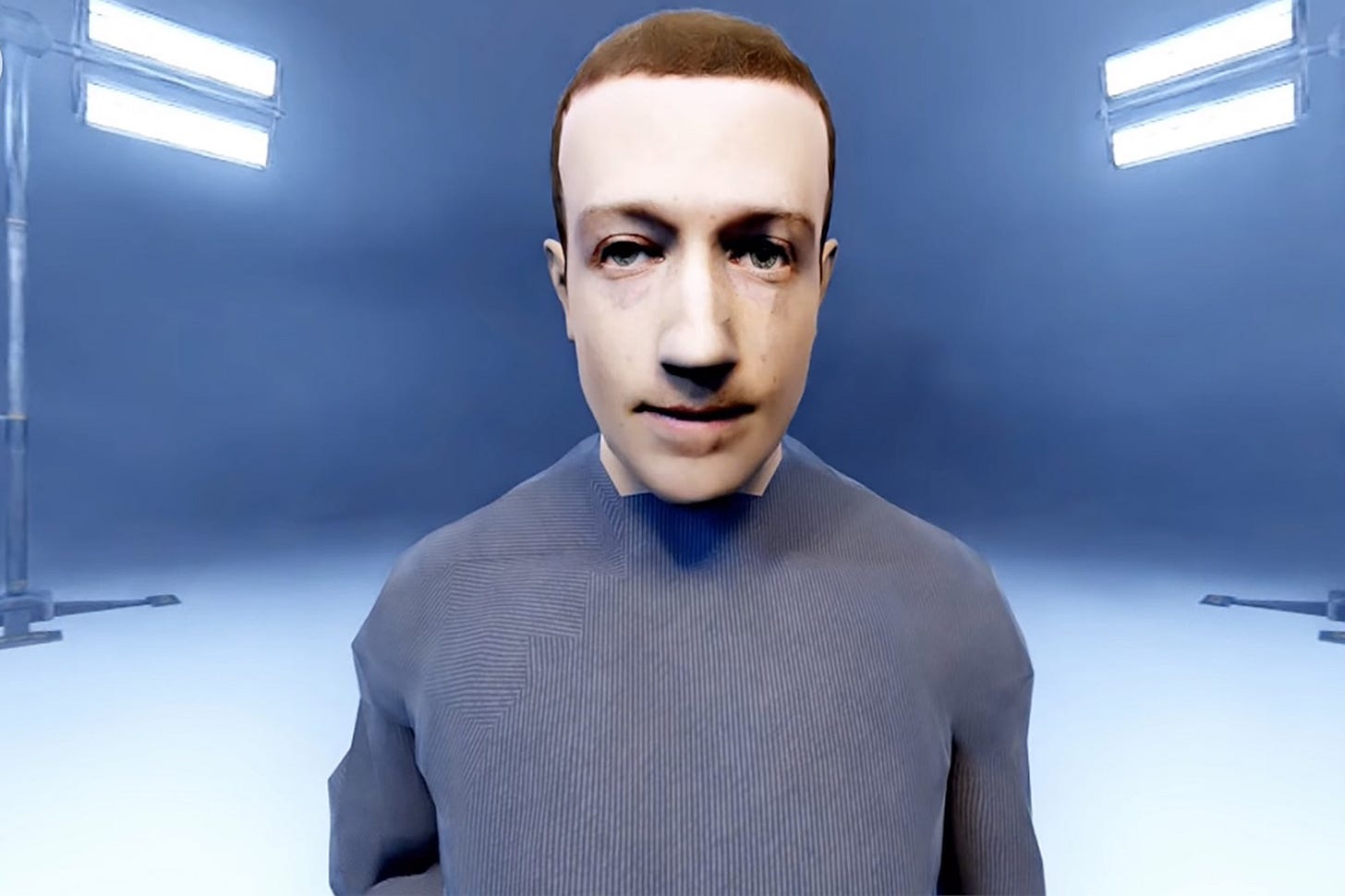Pulling on Threads: the social media age ends in monopoly
or maybe it simply ends
Last week, the company formerly known as Facebook released a brand-new social media platform. Threads is a Twitter clone launched under the Instagram banner. In the first five hours of its launch, five million people had signed up. According to data daddy Mark Zuckerberg, that figure has now ballooned past 100 million. You can find me there as @maxashermiller, just as I am on most other platforms.
With Threads, Mark Zuckerberg clearly hopes to scoop up what little competition remains in the social media landscape. By all accounts, he might just do it. We laughed at his pathetic vision for the Metaverse. We chortled as TikTok ate Instagram's lunch. But Zuck played the long game and now the last laugh will be that weird hissing noise he makes when he's happy.
With text posts now in hand, who is left to halt Mark's empire? Facebook is a nursing home full of racist grandmas and old couches for sale, but it has no viable competitor. Instagram, too, has no competition, and has even managed to establish a reasonable, if far worse competitor to TikTok (which itself may soon be banned due to Meta's own lobbying efforts) in Reels. It all follows a pattern the company established years ago to eliminate competition. It's hard now to remember when Snapchat was the cool new kid in class, but Instagram smacked it over the head with its own stories feature while everyone pointed and jeered.
As Elon Musk drove the value of Twitter into the ground, he did the same to its culture, blowing the dog whistle to fascists with "anti-woke" sentiment and handing the platform over to the most vitriolic far-right trolls via a wildly unbalanced verification system. In his shortsighted attempts to cut costs, he fired most of Twitter's legacy staff. Many of those laid off were poached by Meta to build Threads, and in their absence, Twitter now regularly crashes. Musk has implemented rate limits even for paid subscribers, a move that turned some of his most hardheaded fans against him.
The result is that a single man, Mark Zuckerberg, is now on the verge of owning every platform with the potential to be what Musk once idiotically referred to as a "digital town square." If you want to connect with people you know in real life, and you want to do so online, you'll have to enter the kingdom of Meta and accept Mark's Sweet Baby Ray's.
We can, of course, talk about all the various platforms for which Meta still has no answer, like YouTube and—I don't know, Quora? But crucially, those are not social platforms. No one watches YouTube to catch up with friends. Assuming the success of Threads, when it comes to places whose primary purpose is to connect you with people you know IRL, Meta is nearly a monopoly.
I can't imagine we all enthusiastically go along with that. People don't like Meta, or Facebook, or Instagram, or Mark Zuckerberg. We've seen too much of their dirty laundry, recognized how they monetized our weakest emotions and inflamed our most tribal impulses for a few more ad views. People who have really been paying attention will certainly remember the time Facebook knowingly facilitated genocide in Myanmar. (Is it just me or does it feel like the genocide thing should have been a bigger deal?) At some level, it feels gross even to engage with a Meta platform, and I hardly suspect I'm alone. There is a reason Meta chose to brand threads as an Instagram product; it is a brand slightly less tarnished than Facebook.
Moreover, though Meta has recouped some value after being unprofitable for more than a year, it isn't making money again. What few gains appear on paper came at the cost of thousands of heartless layoffs, people cut adrift from their source of income for the sake of ticker tape. Aside from the ruthlessness of it all, the layoffs have emaciated teams across the company, a massive brain drain that will hamper further innovation. The launch of Threads can hardly be seen as a restoration of the company's former glory. It is rather the behavior of a sick, starved wolf going after an even sicklier dog.
Meta is banking on sheer force of habit from its users to keep them on Instagram and Threads. We have, over the past fifteen years or so, become accustomed to sharing and posting our lives to the internet, and they are betting that, like addicts, we'll keep doing so even when our hearts aren't in it.
Maybe they're right. I signed up for a Threads account, after all. But on the other hand, I'm a freelance writer with a career to promote. Social media doesn't work unless everyone who doesn't need it for business reasons also wants to be there. Will they stay based on FOMO alone? I'm unconvinced. The social web as we know it may be dying. It is, at the very least, grasping for Threads.
-M


